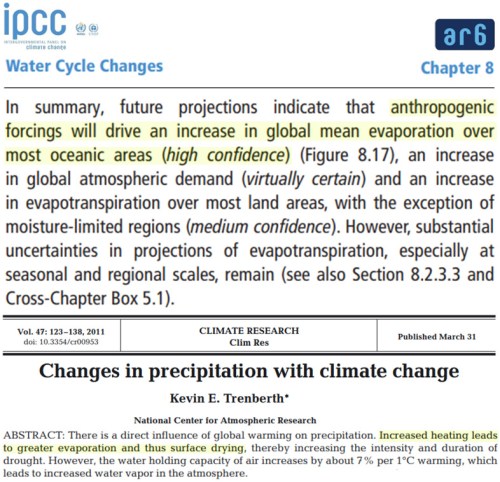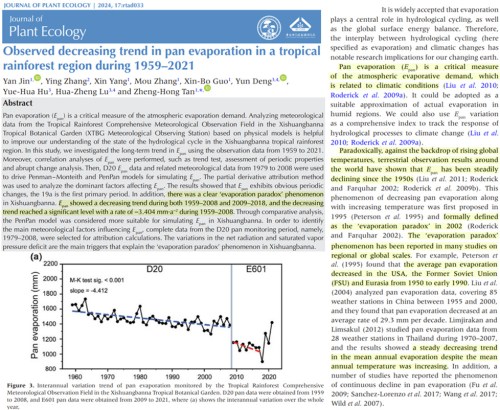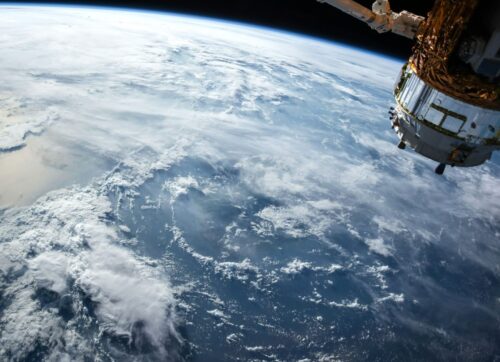
Evaporation is supposed to increase with warming. But, per a new study (Jin et al., 2024), “observation results around the world have shown that evaporation has been steadily declining since the 1950s.” [emphasis, links added]
This is referred to as the anthropogenic global warming “evaporation paradox” problem, where models and assumptions are contradicted by observations.
According to the IPCC (AR6) and the most seminal paper on the subject (Trenberth, 2011, with 3800 citations), “anthropogenic forcings will drive an increase in global mean evaporation over most oceanic areas (high confidence),” as “increased heating leads to greater evaporation.”

However, the new paper once again points out that observations conflict with the anthropogenic global warming narrative.
“Paradoxically, against the backdrop of rising global temperatures, terrestrial observation results around the world have shown that Epan has been steadily declining since the 1950s…”
“The ‘evaporation paradox’ phenomenon has been reported in many studies on regional or global scales.”

The authors acknowledge it is “widely proposed” that there will be “increased evaporation in open water bodies” with warming. So their results, which show declining evaporation since the 1950s, may “seem surprising.”
“At first glance, these results may seem surprising, since the near-surface air temperature has been rising, and it is widely proposed that warming climate will make the air drier and promote the hydrological cycle, which will lead to increased evaporation in open water bodies, including pan evaporators.”
If it can indeed be established that evaporation increases with warming, and simultaneously, evaporation trends can be shown to be declining, at what point do we question if there has indeed been sufficiently significant warming in the regions where evaporation is declining?
Why is referring to these trends as a surprising “paradox” that can perhaps be explained away with more assumptions the better option?
Read more at No Tricks Zone



















Global warming theory says that a warmer earth will have more evaporation. This is supposed to drive hurricanes to be stronger. However, on the average hurricane strength has remained about the same. This is consistent with the finding that evaporation is not increasing.
The article asked the question if we should question consensus on warming if we have decreasing evaporation. Basic physics says that there should be an increase in evaporation if there is warming. As such it is probable that the warming hasn’t been happening. Considering the overwhelming fraud trying to support the theory of warming it is reasonable that the reality is we haven’t had any.
“Paradox”!? That darn science of physical chemistry keeps getting in the way of the Global Warming agenda. To get less evaporation, you have to have less energy in the system. Not hotter. Bummer to climate activists.